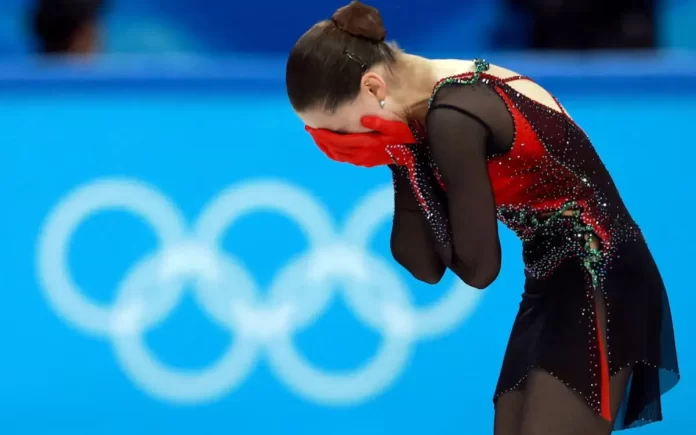London: The recent disclosure of the extensive regimen of 56 medications and dietary aids administered to banned Russian figure skater Kamila Valieva has thrust into the spotlight the ambiguous realm of legal supplements. This revelation underscores the potential dangers lurking within the realm of nutritional enhancements, where a contaminated substance or vague labeling could spell catastrophe for elite athletes.
Meagan Duhamel, Canada’s two-time world figure skating champion, adopted a cautious approach to supplements throughout her competitive career. She harbored a distrust for antibiotics and was meticulously wary of vitamins and minerals, fearing any inadvertent trigger for a positive doping result. “I didn’t take antibiotics once in my elite career and I questioned any vitamins,” she revealed to Reuters. Duhamel’s sentiment reflects a sentiment shared by many athletes who tread cautiously in the realm of supplementation.
The staggering number of supplements reportedly consumed by Valieva between the ages of 13 and 15 has raised eyebrows within the sporting community. Duhamel, reflecting on her own experience, remarked on the stark contrast: “When we had to fill out a list of whatever we took within a certain number of days, mine was always the same: iron, magnesium, and calcium.” Such disparities highlight the need for greater scrutiny and regulation within the realm of sports supplementation.
Also Read | Second Global AI Safety Summit to be Hosted by South Korea on May 21-22
In January, the Court of Arbitration for Sport (CAS) adjudicated Valieva guilty of an anti-doping violation following the discovery of Trimetazidine (TMZ) in her sample. The subsequent four-year ban and nullification of her results at the 2022 Beijing Olympics sent shockwaves through the sporting world. Valieva attributed her positive test to a strawberry dessert prepared by her grandfather, igniting debates regarding accountability and responsibility.
Stefano Montanari, a sports nutritionist and lecturer at Manchester Metropolitan University, cautioned against the indiscriminate use of supplements, particularly among young athletes. “Even without looking at the list, in such a young athlete, (56) is a lot,” he remarked. Montanari stressed the importance of prioritizing dietary intake over supplementation and warned against the potential health risks associated with excessive supplement consumption.
Jeremy Luke, CEO of the Canadian Centre for Ethics in Sport, underscored the critical importance of diligence and vigilance in navigating the supplement landscape. “What’s really important for an athlete is you are responsible for what is in your body,” Luke emphasized. He urged athletes to consult with qualified professionals and prioritize transparency and accountability in their supplement regimen.
Also Read | Food Crisis Worsens: Nearly 55 Million People Face Hunger in West and Central Africa
Rachel Hannah, a five-time Canadian champion distance runner and registered dietician, highlighted the pervasive influence of marketing within the supplement industry. She urged athletes to prioritize third-party tested supplements to ensure product safety and mitigate the risk of inadvertent doping violations.
In conclusion, Valieva’s medication saga serves as a cautionary tale, shedding light on the intricate challenges and potential pitfalls inherent within the realm of sports supplementation. As athletes navigate this complex landscape, diligence, transparency, and informed decision-making remain paramount.



